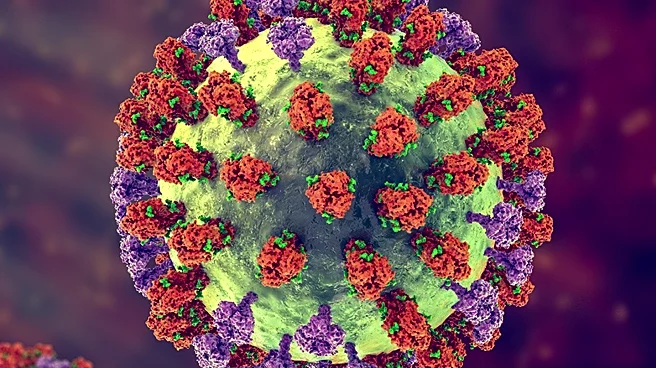What's Happening?
A measles case has been reported in Grand Junction, Colorado, raising concerns about potential exposure to Mesa County residents. The Colorado Department of Public Health and Environment announced that an unvaccinated adult resident contracted measles, likely through community transmission, as the patient had not traveled outside the state or been exposed to known measles cases. This case adds to the 20 measles cases reported statewide in 2025, with a significant number involving unvaccinated individuals. The patient visited several locations in Grand Junction while contagious, prompting health officials to advise residents who may have been exposed to limit contact with others for 21 days. Symptoms to watch for include fever, cough, runny nose, red eyes, and a rash. Residents exposed can still receive the MMR vaccine within 72 hours to potentially prevent the disease.
Why It's Important?
The measles case in Grand Junction highlights the ongoing public health challenge posed by vaccine-preventable diseases. With 20 cases reported in Colorado this year, the majority involving unvaccinated individuals, the situation underscores the importance of vaccination in preventing outbreaks. Measles is highly contagious, and the potential exposure in Mesa County could lead to further cases if not managed effectively. This incident serves as a reminder of the critical role vaccines play in safeguarding public health and preventing the spread of infectious diseases. The community transmission aspect of this case is particularly concerning, as it suggests the presence of measles within the local population, increasing the risk of further spread.
What's Next?
Mesa County Public Health is actively investigating the source of the measles infection and monitoring potential exposures. Residents who suspect they have been exposed are advised to contact healthcare providers before visiting medical facilities to prevent further spread. Health officials are likely to continue promoting vaccination efforts to curb the outbreak and protect the community. The situation may prompt discussions on public health policies and vaccination mandates to prevent similar occurrences in the future.









